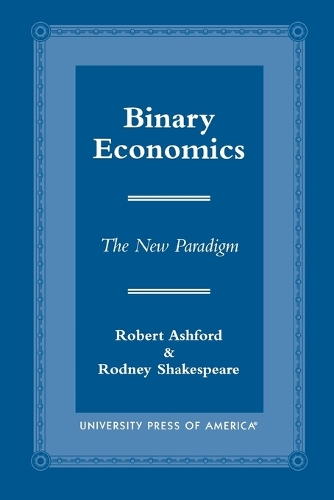
Binary Economics: The New Paradigm
(Paperback)
Publishing Details
Binary Economics: The New Paradigm
By (Author) Robert Ashford
By (author) Rodney Shakespeare
University Press of America
University Press of America
24th February 1999
United States
Classifications
General
Non Fiction
Business and Management
330.1
Physical Properties
Paperback
448
Width 150mm, Height 229mm, Spine 25mm
748g
Description
Binary Economics presents a new paradigm which founds a practical new economics and a unifying new politics that enable people to understand and realize their essential rights and responsibilities in a market economy. This paradigm recognizes that capital has a potent productive and distributive relationship to growth, and by democratically extending the efficient means to acquire capital to all people using the earnings of capital on market principles, binary economics offers many important benefits beyond those provided by conventional economics. The authors present this concept as new hope for solving seemingly intractable problems of economic efficiency, distribution, and justice not solved by conventional economic theories and practices, while enabling people to understand and realize their essential rights and responsibilities in a market economy. The binary paradigm allows cooperation with governments to make modest reforms to existing capital markets so that all people can acquire capital using the earnings of capital and offering the market foundation for many important benefits, including substantial, sustainable growth; more equal opportunity and social justice; increased earning power for the poor, working and middle class people; a greener environment; individual autonomy; strong families and communities; strengthened democracy; and voluntary control of population levels.
Reviews
. . . binary economics is intriguing. . . * Business Ethics Magazine *
Examines the great growth in productive capacity and total economic output in industrial economies over the past two hundred and fifty years. * Journal of Economic Literature *
Author Bio
Robert Ashford is Professor of Law at Syracuse University.
Rodney Shakespeare is a Barrister in London.
